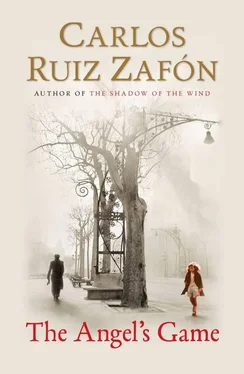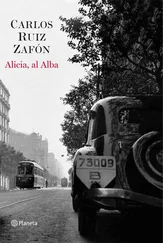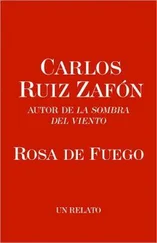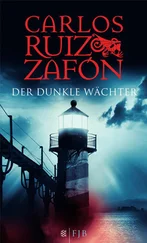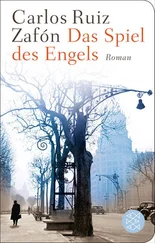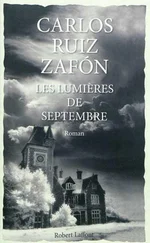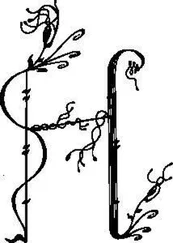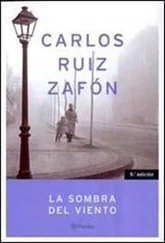‘You have more zeal than good taste, Martín. The disease afflicting you has a name, and that is Grand Guignol: it does to drama what syphilis does to your privates. Getting it might be pleasurable, but from then on it’s all downhill. You should read the classics, or at least Don Benito Pérez Galdós, to elevate your literary aspirations.’
‘But the readers like my stories,’ I argued.
‘You don’t deserve the credit. That belongs to your rivals: they are so bad and pedantic that they could render a donkey catatonic in less than a paragraph. When are you going to mature and stop munching the forbidden fruit once and for all?’
I would nod, full of contrition, but secretly I caressed those forbidden words, Grand Guignol, and I told myself that every cause, however frivolous, needed a champion to defend its honour.
I was beginning to feel like the most fortunate of creatures when I discovered that some of my colleagues at the paper were annoyed that the junior and official mascot of the editorial room had taken his first steps in the world of letters while their own literary ambitions had languished for years in a grey limbo of misery. The fact that the readers were lapping up these modest stories more than anything else published in the newspaper during the last twenty years only made matters worse. In just a few weeks I saw how the hurt pride of those whom, until recently, I had considered to be my only family now transformed them into a hostile jury. They stopped greeting me and ignored me, sharpening their malice by aiming phrases full of sarcasm and spite at me behind my back. My inexplicable good fortune was attributed to Pedro Vidal, to the ignorance and stupidity of our readers and to the widely held national belief that achieving any measure of success in any profession was irrefutable proof of one’s lack of skill or merit.
In view of this unexpected and ominous turn of events, Vidal tried to encourage me, but I was beginning to suspect that my days at the newspaper were numbered.
‘Envy is the religion of the mediocre. It comforts them, it responds to the worries that gnaw at them and finally it rots their souls, allowing them to justify their meanness and their greed until they believe these to be virtues. Such people are convinced that the doors of heaven will be opened only to poor wretches like themselves who go through life without leaving any trace but their threadbare attempts to belittle others and to exclude – and destroy if possible – those who, by the simple fact of their existence, show up their own poorness of spirit, mind and guts. Blessed be the one at whom the fools bark, because his soul will never belong to them.’
‘Amen,’ Don Basilio would agree. ‘Had you not been born so rich you could have become a priest. Or a revolutionary. With sermons like that even a bishop would fall on his knees and repent.’
‘You two can laugh,’ I protested. ‘But the one they can’t stand the sight of is me.’
Despite the wide range of enmity and distrust that my efforts were generating, the sad truth was that, even though I gave myself the airs of a popular writer, my salary only allowed me to subsist, to buy more books than I had time to read and to rent a dingy room in a pensión buried in a narrow street near Calle Princesa. The pensión was run by a devout Galician woman who answered to the name of Doña Carmen. Doña Carmen demanded discretion and changed the sheets once a month: residents were advised to abstain from succumbing to onanism or getting into bed with dirty clothes. There was no need to forbid the presence of the fair sex in the rooms because there wasn’t a single woman in all Barcelona who would have agreed to enter that miserable hole, even under pain of death. There I learned that one can forget almost everything in life, beginning with bad smells, and that if there was one thing I aspired to, it was not to die in a place like that. In the low hours – which were most hours – I told myself that if anything was going to get me out of there before an outbreak of tuberculosis did the job, it was literature, and if that pricked anyone’s soul, or their balls, they could scratch them with a brick.
On Sundays, when it was time for Mass and Doña Carmen went out for her weekly meeting with the Almighty, the residents took advantage of her absence to gather in the room of the oldest person among us, a poor devil called Heliodoro whose ambition as a young man had been to become a matador, but who had ended up as a self-appointed expert and commentator on bullfighting, in charge of the urinals on the sunny side of the Monumental Bullring.
‘The art of bullfighting is dead,’ he would proclaim. ‘Now it’s just a business for greedy stockbreeders and bullfighters with no soul. The public cannot distinguish between bullfighting for the ignorant masses and an authentic faena only connoisseurs can appreciate.’
‘If only you’d been allowed to show your skills as a bullfighter, Don Heliodoro, things would be very different.’
‘Truth is, only the useless get to the top in this country.’
‘Never better said.’
After Don Heliodoro’s weekly sermon came the fun. Piled together like a load of sausages by the small window of his room, we residents could see and hear, across the inner well, the exertions of Marujita, a woman who lived in the next building and was nicknamed Hot Pepper because of her spicy language and the shape of her generous anatomy. Marujita earned her crust scrubbing floors in second-rate establishments, but she devoted her Sundays and feast days to a seminarist boyfriend who took the train down from Manresa and applied himself, body and soul, to the carnal knowledge of sin.
One Sunday, my pensión colleagues were crammed against the window hoping to catch a fleeting sight of Marujita’s titanic buttocks in one of those undulations that pressed them like dough against the tiny window pane, when the doorbell rang. Since nobody volunteered to go and open the door, thereby losing their spot and a good view of the show, I gave up my attempts at joining the chorus and went to see who had come. When I opened the door I was confronted with a most unlikely sight inside that miserable frame: Don Pedro Vidal, cloaked in his panache and his Italian silk suit, stood smiling on the landing.
‘And there was light,’ he said, coming in without waiting for an invitation.
Vidal stopped to look at the sitting room that doubled as dining room and meeting place and gave a sigh of disgust.
‘It might be better to go to my room,’ I suggested.
I led the way. The shouts and cheers of my co-residents in honour of Marujita and her venereal acrobatics bored through the walls with jubilation.
‘What a lively place,’ Vidal commented.
‘Please come into the presidential suite, Don Pedro,’ I invited him.
We went in and I closed the door. After a very brief glance around my room he sat on the only chair and looked at me with little enthusiasm. It wasn’t hard to imagine the impression my modest home had made on him.
‘What do you think?’
‘Charming. I’m thinking of moving here myself.’
Pedro Vidal lived in Villa Helius, a huge modernist mansion with three floors and a large tower, perched on the slopes that rose up to Pedralbes, at the crossing between Calle Abadesa Olzet and Calle Panamá. The house had been given to him by his father ten years earlier in the hope that he would settle down and start a family, an undertaking which Vidal had somewhat delayed. Life had blessed Don Pedro Vidal with many talents, chief among them that of disappointing and offending his father with every gesture he made and every step he took. To see him fraternising with undesirables like me did not help. I remember that once, when visiting my mentor to deliver some papers from the office, I bumped into the patriarch of the Vidal clan in one of the hallways of Villa Helius. When he saw me, Vidal’s father told me to go and fetch him a glass of tonic water and a cloth to clean a stain off his lapel.
Читать дальше
